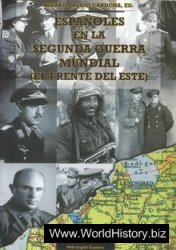The historical literature on the counter cultures is dominated by works of cultural and social analysis. Some of the most insightful books in this genre are Gerd-Rainer Horn, The Spirit of ’68: Rebellion in Western Europe and North America, 1956-1976 (New
York: Oxford University Press, 2007), Arthur Marwick, The Sixties: Cultural Revolution in Britain, France, Italy, and the United States, c. i9}8-c. i9y4 (Oxford: Oxford University Press, 1998), David Farber, Chicago ’68 (Chicago: University of Chicago Press, 1988), and George Katsiaficas, The Imagination of the New Left: A Global Analysis of 1968 (Boston, MA: South End Press, 1987). Theodore Roszak popularized the term "counter-culture” in the late 1960s, and his writings remain valuable as sources of insight into the self-conception of Americans in the movement at the time. See Roszak's The Making of a Counter Culture: Reflections on the Technocratic Society and Youthful Opposition (Garden City, NY: Doubleday, 1969). For a collection of international primary sources on the counter-cultures, accompanied by interpretive comments, see Jeremi Suri, The Global Revolutions of 1968 (New York: W. W. Norton, 2007).
Historians are beginning to address the influence of the counter-cultures on political leaders across societies. For some of the works in this emerging field, see Samuel H. Baron, Bloody Saturday in the Soviet Union: Novocherkassk, 1962 (Stanford, CA: Stanford University Press, 2001), Andreas W. Daum, Lloyd C. Gardner, and Wilfried Mausbach (eds.), America, the Vietnam War, and the World (New York: Cambridge University Press, 2003), Martin Klimke, The Other Alliance: Student Protest in West Germany and the United States in the Global 1960s (Princeton: Princeton University Press, 2009), Jeremi Suri, Power and Protest: Global Revolution and the Rise of Detente (Cambridge, MA: Harvard University Press, 2003).
The social movements and politics of the 1960s have inspired a broad range of interpretive surveys, some of the most insightful include Paul Berman, A Tale of Two Utopias: The Political Journey of the Generation of 1968 (New York: W. W. Norton, 1996), Terry H. Anderson, The Sixties, 3rd ed. (New York: Longman, 2006), Doug Rossinow, The Politics ofAuthenticity: Liberalism, Christianity, and New Left America (New York: Columbia University Press, 1998), Van Gosse, Rethinking the New Left: An Interpretive History (New York: Palgrave Macmillan, 2005), Maurice Isserman and Michael Kazin, America Divided: The Civil War ofthe 1960s (New York: Oxford University Press, 2000), Zhores A. Medvedev, Ten Years after Ivan Denisovich, trans. Hilary Steinberg (New York: Alfred A. Knopf, 1973), Ludmilla Alexeyeva and Paul Goldberg, The Thaw Generation: Coming of Age in the Post-Stalin Era (Pittsburgh, PA: University of Pittsburgh, 1990), Wolfgang Kraushaar, 1968 als Mythos, Chiffre und Zasur (Hamburg: Hamburger Edition, 2000), Ingrid Gilcher-Holtey (ed.), 1968 - Von Ereignis zum Gegenstand der Geschichtwissenschaft (Gottingen: Vandenhoeck and Ruprecht, 1998), Rolf Uesseler, Die 68er: APO, Marx undfreie Liebe (Munich: Wilhelm Heyne Verlag, 1998), Roderick MacFarquhar and Michael Schoenhals, Mao’s Last Revolution (Cambridge, MA: Harvard University Press, 2006), Anita Chan, Children ofMao: Personality Development and Political Activism in the Red Guard Generation (Seattle, WA: University of Washington Press, 1985).
A number of authors have examined the comparative dynamics of protest across societies. For some of the most suggestive works, see Jeremy Varon, Bringing the War Home: The Weather Underground, the Red Army Faction, and Revolutionary Violence in the Sixties and Seventies (Berkeley, CA: University of California Press, 2004), Carole Fink, Phillip Gassert and Detlef Junker (eds.) 1968: The World Transformed (New York: Cambridge University Press, 1998), Gerard J. DeGroot (ed.), Student Protest: The Sixties and After (New York: Longman, 1998); Klimke, The “Other” Alliance; Marwick, The Sixties; Katsiaficas, The Imagination of the New Left; Suri, Power and Protest.
The literature on "law and order” politics is quite large and varied in focus. For some of the best works, see Bruce J. Schulman and Julian E. Zelizer (eds.), Rightward Bound: Making America Conservative in the 1970s (Cambridge, MA: Harvard University Press, 2008), Joseph Crespino, In Search of Another Country: Mississippi and the Conservative Counterrevolution (Princeton, NJ: Princeton University Press, 2007), Matthew D. Lassiter, The Silent Majority: Suburban Politics in the Sunbelt South (Princeton, NJ: Princeton University Press, 2006), Kevin M. Kruse, White Flight: Atlanta and the Making of Modern Conservatism (Princeton, NJ: Princeton University Press, 2005), Michael W. Flamm, Law and Order: Street Crime, Civil Unrest, and the Crisis of Liberalism in the 1960s (New York: Columbia University Press, 2005), Dan T. Carter, The Politics ofRage: George Wallace, The Origins of the New Conservatism, and the Transformation ofAmerican Politics, 2nd ed. (Baton Rouge, LA: Louisiana State University Press, 2000), Patrick Moreau, Les Heritiers due Ille Reich: L’extreme Droite Allemands de 1947 d nos Jours (Paris: Editions du Seuil, 1994), Jacques Schuster, Heinrich Albertz - der Mann, der mehrere Leben lebte: eine Biographie (Berlin: Alexander Fest Verlag, 1997), Klaus Hildebrand, Von Erhard zur Grofen Koalition, 1963-1969 (Stuttgart: Deutsche Verlags-Anstalt, 1984), Dmitri Volkogonov, Sem Vozhdei: Galereia liderov SSSR [Seven Bosses: A Gallery of Soviet Leaders], 2 vols. vol. II (Moscow: Novosti, 1995), and Edwin Bacon and Mark Sandle (eds.), Brezhnev Reconsidered (Houndmills: Palgrave, 2002).
The historiography on foreign policy in the 1960s and 1970s, and detente in particular, is growing rapidly with the opening of new archival sources in numerous societies. For some of the most insightful books, see Robert D. Schulzinger, A Time for Peace: The Legacy of the Vietnam War (New York: Oxford University Press, 2006), John Lewis Gaddis, The Cold War: A New History (New York: Penguin Press, 2005), Jussi Hanhimaki, The Flawed Architect: Henry Kissinger and American Foreign Policy (New York: Oxford University Press, 2004), Thomas Alan Schwartz, Lyndon Johnson and Europe: In the Shadow of Vietnam (Cambridge, MA: Harvard University Press, 2003), M. E. Sarotte, Dealing with the Devil: East Germany, Detente, and Ostpolitik, 1969-1973 (Chapel Hill, NC: University of North Carolina Press, 2001), Qiang Zhai, China and the Vietnam Wars, 1970-1977 (Chapel Hill, NC: University of North Carolina Press, 2000), Ilya V. Gaiduk, The Soviet Union and the Vietnam War (Chicago: Ivan R. Dee, 1996), Raymond Garthoff, Detente and Confrontation: American-Soviet Relations from Nixon to Reagan, rev. ed. (Washington, DC: Brookings Institution, 1994), and Suri, Power and Protest and Henry Kissinger and the American Century (Cambridge, MA: Belknap Press of Harvard University Press, 2007).




 World History
World History









